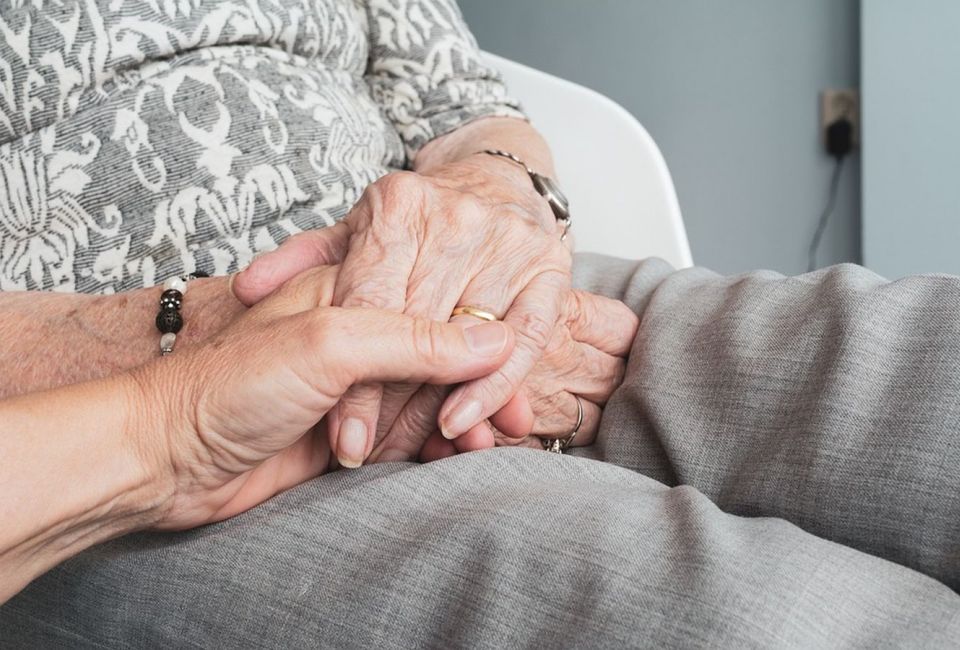
Training, mobile apps and a virtual community - new resources to improve the quality of life of caregivers of people with Alzheimer's and dementia
According to the latest estimates, 153 million adults worldwide by 2050 - three times as many as today - will be living with dementia, which suggests that the world is facing a major health, social and economic problem. Caregivers of relatives who have Alzheimer's and other forms of dementia usually have to take on the role of primary caregiver during their disease, which means they have very diverse needs. These include receiving support for tasks related to looking after the people they care for, having an enhanced and improved relationship with healthcare personnel, having to adapt their home, coping with increased living expenses, making sure they look after their own health, dealing with a change in the relationship with the person they care for and their environment, and receiving help to plan for facing the future with the disease from various perspectives.
In this context, the Co-Created ICT Solutions for Alzheimer's Informal Caregiving (Co-Care) European project, which has been coordinated by the University of Vic - Central University of Catalonia (UVic-UCC) over the last three years, has aimed to improve the quality of life (and especially the mental health) of caregivers of relatives with dementia. The latter account for a growing percentage of the population, which is increasingly significant from the perspectives of health, innovation and technology, among other areas. Co-care is based on the co-creation of tools and resources that can alleviate caregivers' needs by universities, professionals and caregivers in both the information and communication technology (ICT) and healthcare fields.
The Co-Care project, which officially concluded with a final conference in Brussels in December 2022, has achieved the three main goals it established at its outset: to provide a hybrid training resource (face-to-face and online), to provide a toolkit for caregivers - basically mobile apps - and to build an online community of practice.
Various ideas
The Co-Care project's hybrid training resource is aimed at students in the fields of technologies, health and social care, and aims to encourage entrepreneurship in order to create products that are more suited to the needs of future users (caregivers). "The training aims to be able to provide the knowledge and skills necessary to enable people to put forward, design, develop and assess interventions aimed at meeting a real need," explains Anna Ramon-Aribau, the coordinator of the Co-Care project at UVic-UCC.
This training, which was developed by the project's university partners, was pilot tested in 2021, and it is expected to take place once again and be available on a regular basis from the 2023-2024 academic year onwards. It will be aimed at university students, and some of the training topics and materials will be available in MOOC format, and can be accessed through the project's website.
The technological tools for caregivers are mobile applications that they can use to help meet some of their needs. For example, there is an app to track carers' psychological well-being, another app providing advice related to food and physical exercise for both the carer and the person with Alzheimer's, and an app with a geolocation facility for the person with dementia. All these tools are available in a single Toolkit that was created during the Co-Care project, which can be accessed via the project's website, subject to prior registration.
A community of practice
Finally, a community of practice has been established as a result of the Co-Care project, in which those involved (carers, technology and healthcare professionals, government institutions, researchers, etc.) can provide mutual support and interact with each other, and engage in discussions and improve the caregivers' quality of life. This community can also be joined through the project's website, subject to prior registration. "The aim of this resource is to share concerns about caregivers' needs, and to learn how to improve how we meet them with technological solutions from the co-creation perspective," explains Ramon-Aribau.
All the products and knowledge created during the project, as well as the learning framework for the development of the Toolkit and the training course, will remain accessible on the website after Co-Care ends.
Two Catalan partners were involved in the Co-Care project: the Pasqual Maragall Foundation for Alzheimer's research and the company Confluència Solucions en Convergència Digital i Mobilitat, as well as seven other institutions in Portugal, United Kingdom and Belgium. The project, which officially began on 1 January 2020, was carried out within the framework of the Knowledge Alliances call of the Erasmus+ programme, which organises transnational activities by higher education institutions and businesses.